Aerosol Pulse Jet Engine
175000 INR/Unit
Product Details:
- Product Type Vehicle Mounted Thermal Fogging Machine
- Tank Capacity 6 Liter (L)
- Weight 50 Kilograms (kg)
- Usage & Applications Plant Protection, Health and Hygiene protection
- Click to View more
X
Aerosol Pulse Jet Engine Price And Quantity
- 175000 INR/Unit
- 1 Unit
Aerosol Pulse Jet Engine Product Specifications
- 6 Liter (L)
- 50 Kilograms (kg)
- Vehicle Mounted Thermal Fogging Machine
- Plant Protection, Health and Hygiene protection
Aerosol Pulse Jet Engine Trade Information
- 10 Unit Per Week
- 7 Days
- Asia
- All India
Product Description
We provide Thermal Aerosol Pulse Jet Engine which is suited for wide applications in many industries. It is engineered to a specific pressure or vacuum. We provide this engine at best market price. It is used as dust collector for the purpose of removing dry particles from general ventilation air and for the recovery of product from various other manufacturing processes. It contains number of bags covered on metallic cage the bags are made of PP Polyester, Aramid, etc.
Thermal Aerosol Pulse Jet Engine Features:
1. Simple Design: Thermal Aerosol Pulse Jet Engine have a relatively simple design compared to other types of jet engines. They do not have any moving parts, and the fuel is typically stored in a single chamber.
2. High Thrust-to-Weight Ratio: They can generate a high amount of thrust relative to their weight, making them ideal for use in small unmanned aerial vehicles (UAVs) or other lightweight aircraft.
3. High Operating Temperatures: This machine operate at very high temperatures, typically in excess of 1,000 degrees Celsius. This allows them to burn a wide variety of fuels, including solid fuels, liquids, and gels.
4. Low Emissions: It produce very low emissions, making them a more environmentally friendly option than traditional jet engines.
5. Versatility: It can be used in a wide range of applications, from small UAVs to mi ssiles and other military applications.
6. Cost-Effective: These machines are typically less expensive to produce and maintain than other types of jet engines, due to their simple design and lack of moving parts.
Thermal Aerosol Pulse Jet Engine Applications:
1. Unmanned Aerial Vehicles (UAVs): Thermal Aerosol Pulse Jet Engines are ideal for powering small UAVs, as they are lightweight, efficient, and cost-effective.
2. M issiles: This machine can be used to power miss iles, as they provide a high amount of thrust in a compact and lightweight package.
3. Military Drones: TAPJEs can be used to power military drones, allowing them to operate quietly and efficiently while conducting reconnaissance or other missions.
4. Target Drones: It can also be used to power target drones, which are used for training exercises by the military or other organizations.
5. Agricultural Drones: TAPJEs could be used to power agricultural drones, which can spray crops with pesticides or fertilizers more efficiently than traditional methods.
6. Emergency Response Drones: TAPJEs could be used to power emergency response drones, which could deliver medical supplies, food, or other critical items to disaster zones or remote areas.
7. Surveillance Drones: It could also be used to power surveillance drones, which could monitor traffic or other activity in urban areas or along borders.
Frequently Asked Questions:
1. What is a thermal aerosol pulse jet engine (TAPJE)?
Ans - A thermal aerosol pulse jet engine is a type of propulsion system that uses a combination of heat and aerosol fuel to generate thrust. TAPJEs are known for their high thrust-to-weight ratio, low emissions, and simplicity of design.
2. How do TAPJEs work?
Ans - TAPJEs work by heating a fuel mixture of aerosol particles and air, causing it to ignite and expand rapidly. This creates a pulse of high-pressure gas that propels the engine forward.
3. What fuels can be used in TAPJEs?
Ans - TAPJEs can burn a wide variety of fuels, including solid fuels, liquids, and gels. The choice of fuel will depend on the specific application and performance requirements.
4. What are the advantages of thermal aerosol pulse jet engine?
Ans - Some of the advantages of TAPJEs include their high thrust-to-weight ratio, low emissions, versatility, and cost-effectiveness.
5. What are the disadvantages of thermal aerosol pulse jet engine?
Ans - Some of the disadvantages of TAPJEs include their relatively low efficiency, limited range, and noise level.
6. What are some applications for thermal aerosol pulse jet engine?
Ans - TAPJEs have a wide range of potential applications, including powering small unmanned aerial vehicles (UAVs), miss iles, military drones, target drones, agricultural drones, emergency response drones, and surveillance drones.
7. How does a thermal aerosol pulse jet engine differ from a traditional jet engine?
Ans - TAPJEs differ from traditional jet engines in that they do not have any moving parts and have a much simpler design. They also burn a wider range of fuels and produce lower emissions.
8. Are thermal aerosol pulse jet engine currently in use?
Ans - TAPJEs are still in the development stage, but they have shown promising results in laboratory tests and simulations.
Tell us about your requirement

Price:
Quantity
Select Unit
- 50
- 100
- 200
- 250
- 500
- 1000+
Additional detail
Mobile number
Email


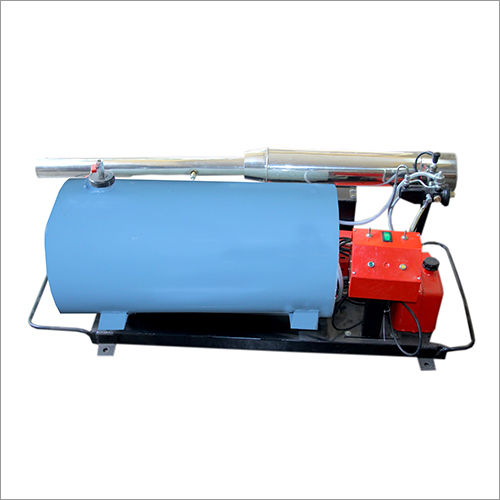
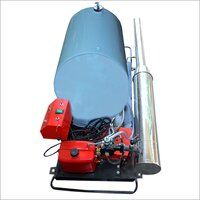
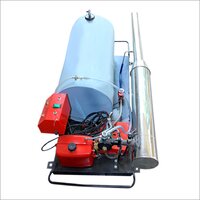
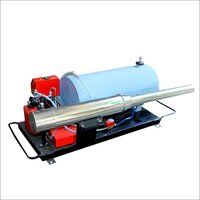
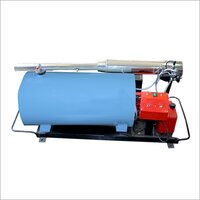






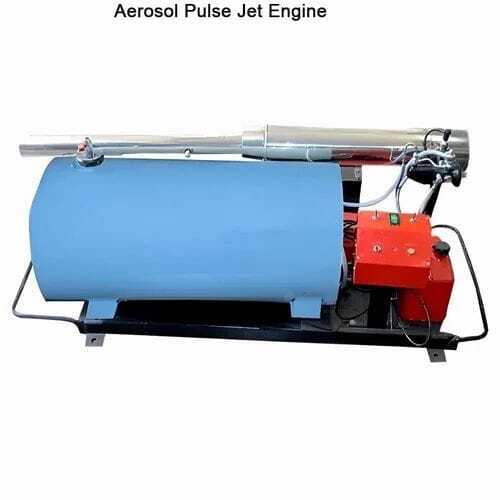
 Send Inquiry
Send Inquiry Send SMS
Send SMS
